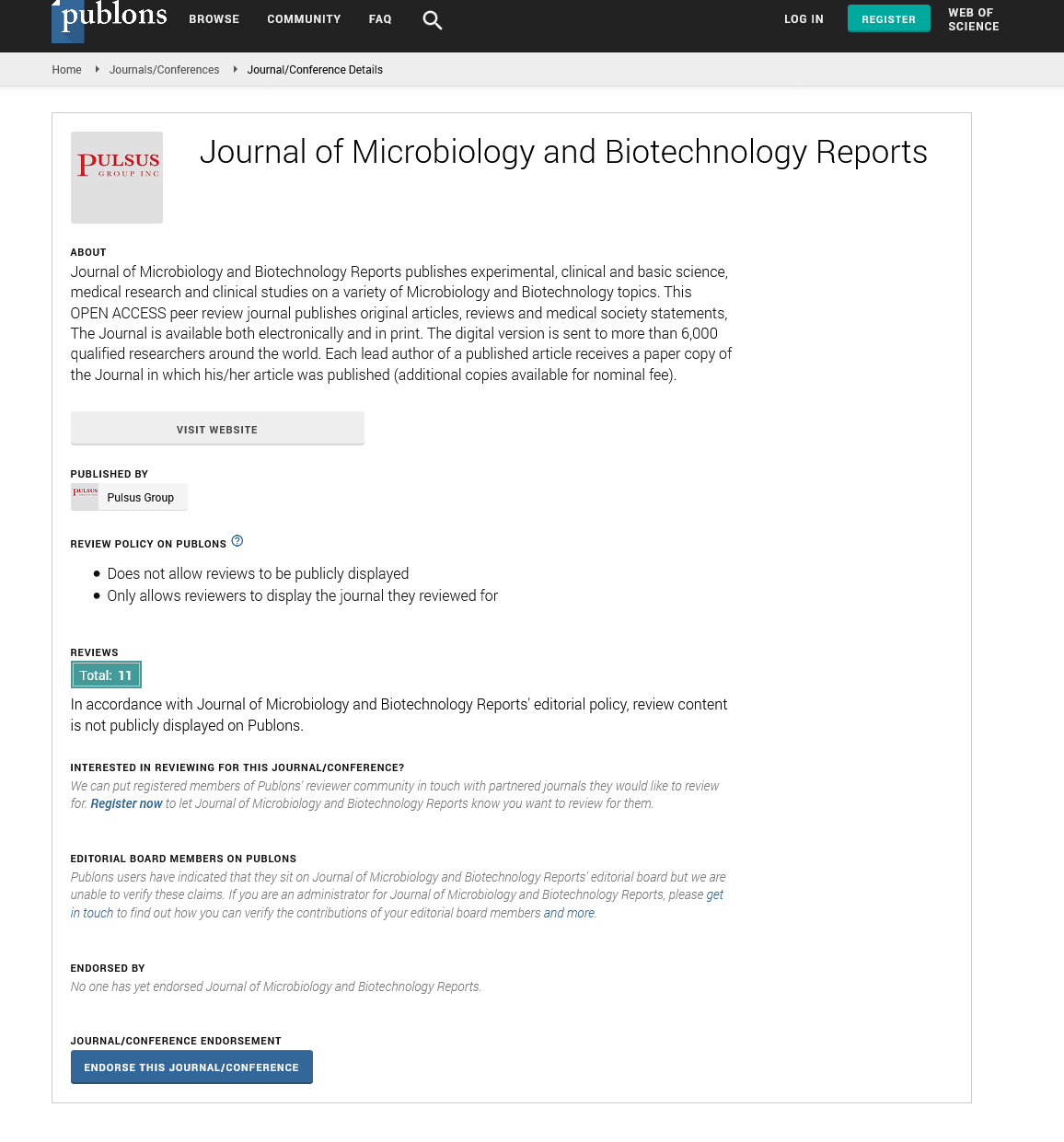
Sign up for email alert when new content gets added: Sign up
Abstract
Effects of chicken manure and chicken manure -derived biochar on the bioavailability and concentration of Lead (Pb) in two Brassica vegetables
Author(s): Moses Mulenga*, Ikabongo Mukumbuta, Benson Chishala and Yoshitaka UchidaLead (Pb) contamination has been widely reported in Kabwe town soils due to mining activities. The bioavailability and excessive amounts of Pb in soils are toxic to both plants and microorganisms. Manure and biochar have been reported to immobilize heavy metals in soil. This study, thus evaluated the effects of chicken manure and chicken manure-derived biochar on the bioavailability of Pb in the soil and its uptake by plants in polluted garden soils of Kabwe. Pots containing Pb contaminated soil with five treatments of manure and biochar in the following proportions: CT (un-amended polluted soil, control); 2% and 4% of CM (chicken manure); 2% of and 4% of CMB (Chicken Manure-Derived Biochar) were used in this study. The manure and biochar were applied as percentage of total mass of soil in the pot. Brassica napus (rape) was planted and grown in the soils under greenhouse conditions for nine weeks. After harvesting the rape, Brassica rapa (Chinese cabbage) was planted in the same pots and grown for eight weeks. The planting of Chinese cabbage was done to ascertain the residual effects of the amendments. Soil pH and bioavailable Pb was measured six times during the experiment and after the harvest, Pb concentration in plant tissues were determined using Atomic Absorption Spectroscopy (AAS-Z series 2010).
Concentrations of bioavailable Pb were higher in the amended soils of 2% and 4% CM (18.90 mg Pb/kg ± 1.5 mg Pb/kg; 21.18 mg Pb/kg ± 2.3 mg Pb/kg), 2% and 4% CMB (29.16 ± 2.4; 41.15 mg Pb/kg ± 2.6 mg Pb/ kg) compared to CT (18.36 mg Pb/kg ± 1.6 mg Pb/kg). Despite higher bioavailable Pb in the manure and biochar amended soils; the concentration of Pb in both rape and Chinese cabbage tissues was lower than that in unamended polluted soil (CT). Concentration of Pb in rape from 2% and 4% CM were less than detection limit, 2% and 4% CMB were 12.79 mg Pb/kg ± 2.49 mg Pb/kg and 8.4 mg Pb/kg ± 0.20 mg Pb/kg while concentration of Pb in rape from CT was 35.13 mg Pb/kg ± 13.72 mg Pb/kg. In Chinese cabbage, all amendments had Pb concentrations in plant tissues less than detection limit while the value in CT was 8.13 mg Pb/kg ± 0.97 mg Pb/kg. The experiment showed that, amendment application with increase in dose application results to reduced Pb uptake by the plants and concentration, despite increased Pb mobilization in soil. It is recommended that these amendments can be used for remediating Pb contaminated soils, as they seem to reduce Pb concentrations in plant tissues
Full-Text | PDF




